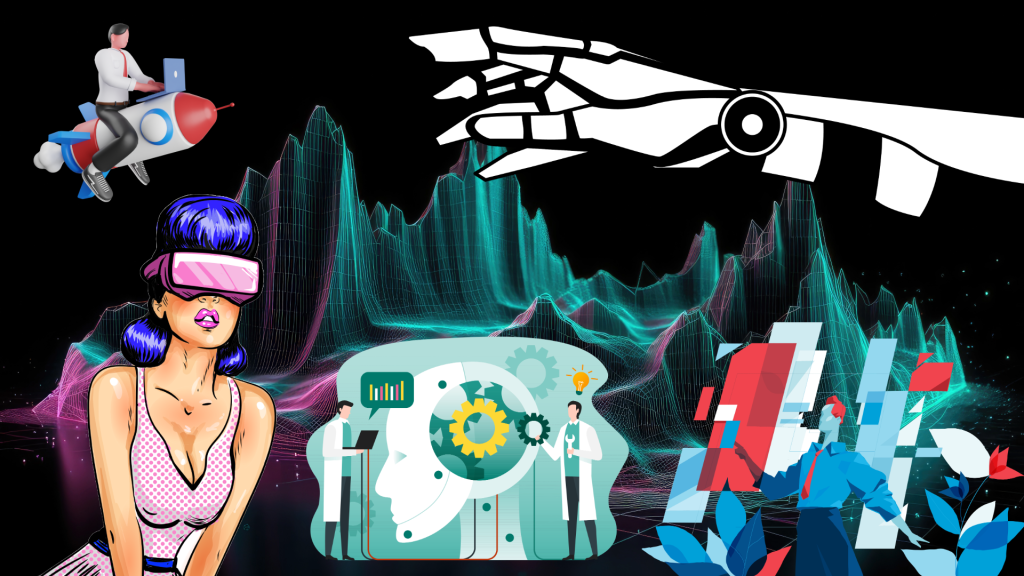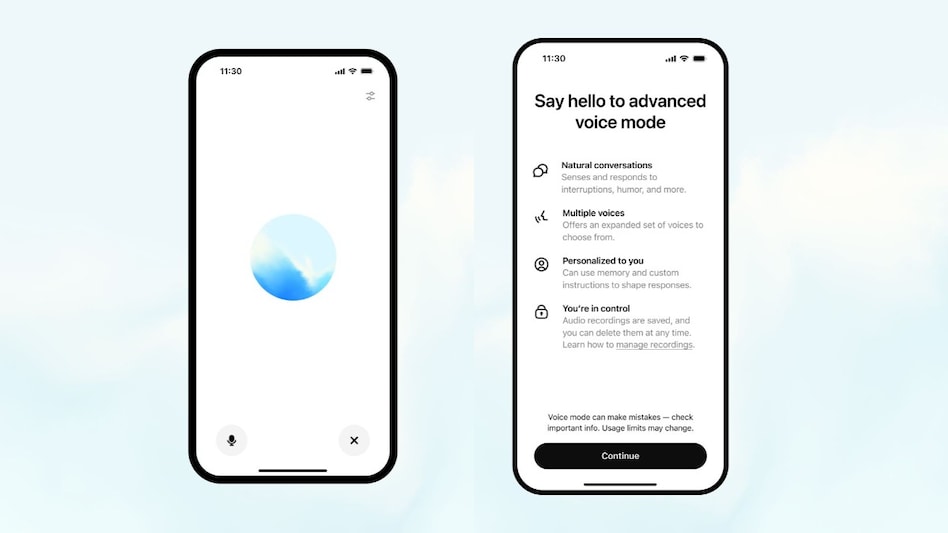

This article is brought to you in partnership with Truetalks Community by Truecaller, a dynamic, interactive network that enhances communication safety and efficiency. https://community.truecaller.com
OpenAI “Advanced Voice” is now rolling out to ChatGPT Teams and Plus users


OpenAI top exec leaves company amidst rumors of Sam Altman and Jony Ive working on HARDWARE
Meta’s Orion Glasses for true AR is here
There is also the neural wrist band which works insanely well for hand gesture identification and hence enables a whole new way of interacting with digitally overlaid elements in AR. A lot of people who tried it with Mark Zuckerberg are positive about the experience and say that this is probably Meta’s first iPhone moment, which the company has worked on for the past 6 years. Zuckerberg revealed at the event that, they are NOT releasing these glasses to commercial channels or to the public and mostly they would want to improve the product first, which once again garnered a lot of positive admiration for the guts, meanwhile Snapchat was panned heavily for launching their own take at AR glasses last week. Read more about it on their blog.
At Connect 2024, Meta has also released its latest take on the VR and Mixed Reality headset, Quest, with the 3S model, stepping in to replace the Quest 2, meanwhile Quest 3 will remain the top end model, with the maximum features available currently for a VR headset. The main changes are in the headset design, its Fresnel lenses, and a slightly narrower field of view. Powered by Snapdragon XR2 processor, the Meta Quest 3s with 128GB of storage starts at just 299$, which aims to keep the momentum for VR going at Meta. Running on the standalone headset is the Horizon OS, which is getting some updates as well, at Connect 2024. This OS was first announced in April of 2024 when it was revealed that other companies can now take advantage of the mixed reality system and build their own hardware with it. For example, ASUS ROG will have a headset running this OS.
Now, with the new AR glasses, Horizon OS has gotten some updates, with multitasking for meta’s apps like Facebook and instagram. A redesign was shown at Connect event, which features a completely overhauled UI yet sporting a simplified interface. The system menu is now called the “navigator”. Horizon Worlds destinations are shown most prominently, and the Library tab now seems to show only the six most recently used apps unless you expand it. For regular users of the Meta headset, this will be understandable. Also newly announced is Llama 3.2, with the highlight being the new 1B and 3B mini models that are capable of running on tiny devices like smartphones. These models are multi-modal and allow the open-source Llama to be used by a wider range of devices in the future. Also new, are tons of AI updates in the multi-modal sphere to Meta AI product that lives inside of Whatsapp, Facebook and Instagram. In all these places, Meta AI will now have voice interactions, meaning it can talk back. Soon it will have support for celebrities – “AI voices of Awkwafina, Dame Judi Dench, John Cena, Keegan Michael Key and Kristen Bell”. Now Meta AI can “see” photos and answer queries about it and even do some edits like quickly changing a background to anything. AI live translation is being tested for a few Instagram creators and influencers where videos will be automatically translated with voice to other languages. Meta’s “imagine me” feature is also being rolled out to imagine yourself into various characters and scenarios, a kind of LoRA-like feature that is mostly popular in GenAI forums. All these updates have been delivered from the Connect 2024 event. Check their blog here for more details.
Iris, a wearable that gives infinite memory
It takes a picture every minute, captions and organizes them into a timeline, and uses AI to help you remember forgotten details.
There is also a “focus mode” where it will nudge the user to not get distracted if it finds the user is indeed getting distracted. It’s like a pendant that hangs on to the neck and takes photos. This might be misconstrued as a privacy-killer but in a world where CCTVs are everywhere, is there any privacy in public? Hardly, so in that case, if someone really wants to solve their issue of forgetting everything, this device might be actually of really amazing help. Imagine you are like the hero of Nolan’s Memento. You keep forgetting everything, but thankfully, your polaroid camera shots are always there, on your wall, to remind you of your mission. For such a scenario, certainly this kind of a device will help become a dedicated note-taker.
Hardware
Seeed Studio XIAO ESP32S3 Sense – 2.4GHz Wi-Fi, BLE 5.0, OV2640 camera sensor, digital microphone, 8MB PSRAM, 8MB FLASH, battery charge supported, rich Interface, IoT, embedded ML
The key thing to note here is that this device not only takes just photos, it also captions it with the help of AI which also indulges in data management and answering questions. Check his blog for more details.
India’s supercomputer independence and the Ultraviolette F99
The company claims that the F99 is India’s first ever superbike. Its top speed is 265 KM/H, backed by a whopping 120HP/90KW of power from the carefully crafted engines fitted with the company’s own electric motor solutions. 0-100 is just 3 seconds and overall weight of the bike is 178 Kilograms. Since the company was founded by aerospace enthusiasts, a lot of focus has been given to aerodynamics and carbon fibre bodywork. Of course, if you know the company, you must know already that they have their own AI called “Violette AI” which constantly monitors and lets you even adjust the performance parameters of the bike and handles security features as well. The aviation DNA and high-tech ambitions are making waves in the industry where not many competitors exist. Ultraviolette’s F99 is a bold step from the Indian startup which aims to put a mark on the world. Check out their website to learn more about this bike.
Chinese bot maker “Pudu” unveils first semi-humanoid “D7”
“We are excited to introduce the PUDU D7, which highlights our commitment to continuous technological and product innovation. Featuring advanced mobility, versatile operational capabilities, and embodied intelligence, this semi-humanoid robot marks a significant milestone in our pursuit of a diverse range of robotic solutions,” said Felix Zhang, Founder and CEO of Pudu Robotics. “By advancing a comprehensive ecosystem of specialized robots, semi-humanoid robots, and humanoid robots, we aim to shape the future of the service robotics industry and deliver exceptional value across various applications.”
Once again, we are just in awe at the rate of speed in which the robotics companies are moving towards making humanoids or semi-humanoids for use in service, especially in dangerous industrial and factory environments. This trend will continue to play a big role in the edge of tomorrow.




